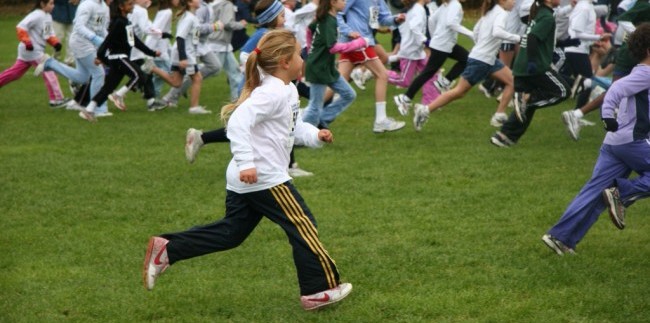 Regular physical activity comes with multiple benefits for anxious children, and one of those is helping them cope with the effects of bullying. Regular exercise has been shown to dramatically decrease suicidal thoughts as well as suicide attempts among students who fall prey to bullies.
Regular physical activity comes with multiple benefits for anxious children, and one of those is helping them cope with the effects of bullying. Regular exercise has been shown to dramatically decrease suicidal thoughts as well as suicide attempts among students who fall prey to bullies.
University of Vermont (UV) researchers discovered this fact when they reviewed data from more than 13,500 high school students who responded to the Centers for Disease Control and Prevention’s National Youth Risk Behavior Survey. Data showed suicidal ideation and suicide attempts decreased 23 percent for bully victims who engaged in physical activity at least four times per week.
While numerous studies have illustrated exercise’s positive effects on mental health, the UV study was the first to associate exercise with a reduction in suicidal thoughts and attempts by bullied children.
Bullies and Schools
Nearly 20 percent of the students surveyed across the nation said they had been bullied on school property. In addition to suicidal thoughts and attempts, bullied children have an increased risk for:
- Poor academic performance
- Low self-esteem
- Anxiety
- Depression
- Sadness
- Substance abuse
The UV study found 30 percent of students reported feeling sad for at least two weeks or more during the previous year. More than 22 percent reported suicidal thoughts and 8.2 percent reported suicide attempts during that same time period.
Compared to their non-bullied peers, bullied students were two times more likely to report sadness and three times more likely to report suicidal ideation or attempts. In addition to decreasing suicidal thoughts and behaviors, four or more days of exercise per week was also linked to notable reductions in sadness.
Exercise and Anxious Children
Regular exercise has been shown to help anxious children in numerous ways, as outlined in our post Exercise for Anxious Children – Why it Matters and How to Get Kids Moving.
An Acta Paediactrica study gauged the number of steps children took per day by having 70 children wear hip pedometers for one week. The study found children who walked more than 12,000 steps per day had significantly higher levels of global self-esteem than those who walked fewer than 9,200 steps per day.
Increased levels of global self-esteem, which refers to a person’s regard to his or her overall worth, can also help when it comes to coping with bullies. Children who view themselves as worthy may be more likely to stand up for themselves or seek help when confronted, whereas children with low levels of self-worth may be prone to silently taking the abuse – or actually believing they deserve it.
Exercise and Schools
The parents’ role in ensuring their anxious children get adequate exercise has become more important than ever as schools are systematically cutting physical education programs across the board. Since the passage of No Child Left Behind in 2001, 44 percent of schools have cut substantial amounts of time from recess, physical education and arts to spend more time on math and reading.
Overall estimates say only about 50 percent of the nation’s children meet the US Health and Human Services Department guidelines that recommend at least one hour of daily moderate to vigorous exercise.
SOURCES:





